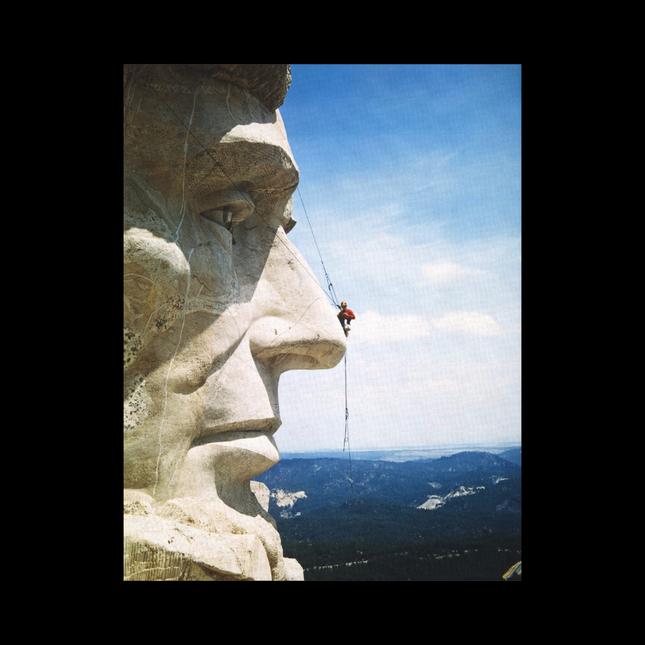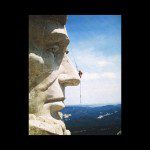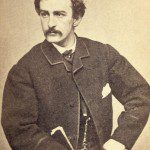In the Shadow of Abraham Lincoln
By • April 13, 2015 0 799

No single group of Americans is as revered in American hearts and minds – minds, especially – as the Founding Fathers, that group of giants from South and North who brought about a revolution.
No single man is more revered in American hearts and minds – hearts, especially, but also imaginations and passions – than Abraham Lincoln, the man from the Midwest, self-taught in almost everything he knew.
This city may bear Washington’s name, but it is not Washington’s city. This is Lincoln’s city.
Emancipation was born and given voice here by Father Abraham. Everyone comes to see Washington’s monument – that challenge to the sky itself, as straight as a soldier’s back on parade – but it’s rare to see weeping in its presence or a sudden, thoughtful stillness.
Everyone is drawn to that stone siren-song of a Lincoln Memorial on the Mall. They gather to sing, to bring on the Easter sun, to commemorate, commiserate and commune before Daniel Chester French’s stunning statue, that seems capable of tears and laughter, of aging and of humbled body and soul.
Everyone comes and came to the man in the big chair, even Richard Nixon. Lincoln finished the unfinished business – unfathomably furious and ferocious – that the Founding Fathers, large as they were, would not wrestle with.
Lincoln led the country at its deepest dark hour, he danced with the bear of what slavery had wrought: an all-consuming war, whose most notable and last victim he became.
This is Lincoln’s city. We are coming up on the 150th anniversary of his assassination by a man Lincoln had seen perform Shakespeare at the National Theatre. Ford’s Theatre – where he was felled by a still-resounding shot from that actor’s derringer – remains a theater, but it is at the same time and at all times a shrine. This is the place and the city where he died, early the next morning, in a boarding house across 10th Street.
This is Lincoln’s city. Out in Petworth, at the site of the Soldiers’ Home, is Lincoln’s Cottage, where he spent time away from the fetid heat, arriving on an a gray horse, at times in the company of his much spoiled and loved son Tad. For a few years, his son Willie was buried in Georgetown at Oak Hill Cemetery.
This is Lincoln’s city. Our great national free-verse poet Walt Whitman, who nursed wounded soldiers pouring in from battles and lived near the cottage, saw him daily. Whitman said, he “looks. . .as the commonest man. … I see very plainly Abraham Lincoln’s dark brown face, with the deep-cut lines, the eyes, always to me with a deep latent sadness in the expression.”
The “commonest of men” was the noblest American of them all. This is his city, our captain, the emancipator, our better angel.
Commemorating Lincoln’s Assassination
A list of events and exhibits to experience history and to experience the nation’s capital, as we commemorate the loss of one of our greatest leaders, Lincoln.
A list of events and exhibits to experience history and to experience the nation’s capital, as we commemorate the loss of one of our greatest leaders, Lincoln.
April 9
Cottage Conversation with Don Doyle and Sidney Blumenthal
Historian Don Doyle discusses his book, “The Cause of All Nations: An International History of the American Civil War,” with journalist Sidney Blumenthal, former aide to Bill Clinton. Tickets are $10 for the lecture and $10 for the reception. For details, visit lincolncottage.org/cc-doyle-2015/. President Lincoln’s Cottage, Upshur Street at Rock Creek Church Rd. NW.
April 14-15
The Lincoln Tribute
This continuous event will mark the 150th anniversary of Lincoln’s assassination. Ford’s Theatre will be open overnight, presenting Ranger talks, the one-act play “One Destiny” and panel discussions about the life, assassination and legacy of our 16th president. On the street outside, all day and all night, living historians will provide first-person accounts about the end of the Civil War, the experience of being inside the theater at the moment of the assassination, medical reports from the Petersen House and the impact of Lincoln’s life and death. The morning of April 15, Ford’s will mark Abraham Lincoln’s death at 7:22 a.m. with a wreath-laying ceremony. Church bells will toll across the city, as in 1865. Tickets are required for entry to the Ford’s Theatre campus. 10th Street NE between E and F Streets. Call 202-347-4833.
April 14-15
Ford’s Theatre Behind-the-Scenes Tour
Author and Ford’s Theatre Society board member Brian Anderson leads a behind-the-scenes tour of Ford’s Theatre based on his book, “Images of America: Ford’s Theatre.” 514 10th St. NW. Call 202-347-4833.
April 15
Midnight Tour with James Swanson
For the history buffs and night owls, James Swanson, author of “Manhunt,” leads a midnight tour of Ford’s Theatre. 514 10th St. NW. Call 202-347-4833.
April 17
Fortune’s Fool: Life of John Wilkes Booth
In Fortune’s Fool, historian Terry Alford provides a comprehensive look at the life of the figure whose life has been overshadowed by his final, infamous act. A book signing will follow the program, which begins at noon. National Archives. 700 Pennsylvania Ave N.W.
April 18-19
On the Trail of the Assassin
This event, featuring historical demonstrations, Civil War reenactments, walking tours, performances and more, will run Saturday, 10 a.m. to 7 p.m., and Sunday, 11 a.m. to 7 p.m., at the Dr. Samuel Mudd House Museum. Event admission is $5 per car. House tour admission is $8 for adults and $2 for ages 6-16. 3725 Dr. Mudd Rd., Waldorf, Maryland. Call 800-766-3386.
Through May 25
Silent Witnesses: Artifacts of the Lincoln Assassination
This exhibition at the Ford’s Theatre Center for Education and Leadership displays a collection of artifacts that were in Ford’s Theatre or carried by Lincoln on the night of his assassination, including the contents of Lincoln’s pockets, his top hat and the gun used. 514 10th St. NW. Call 202-347-4833.
Through May 31
Assassinations in the Capital Tour
This 90-minute tour covers two miles, starting at the Crime Museum and ending at Lafayette Square with a stop by Ford’s Theatre. Participants will learn about assassinations, attempted assassinations and other crime history in the nation’s capital. 575 7th St. NW.
Through Jan. 10
‘President Lincoln Is Dead’: The New York Herald Reports
For the first time since 1865, this Newseum exhibition brings together all seven New York Herald special editions from April 15 of that year, beginning with the 2 a.m. edition, containing the earliest Associated Press report that Lincoln had been shot. 555 Pennsylvania Ave. NW. Call 202-292-6100.
- Repairman climbs up the face of Abraham Lincoln at Mount Rushmore in South Dakota.



